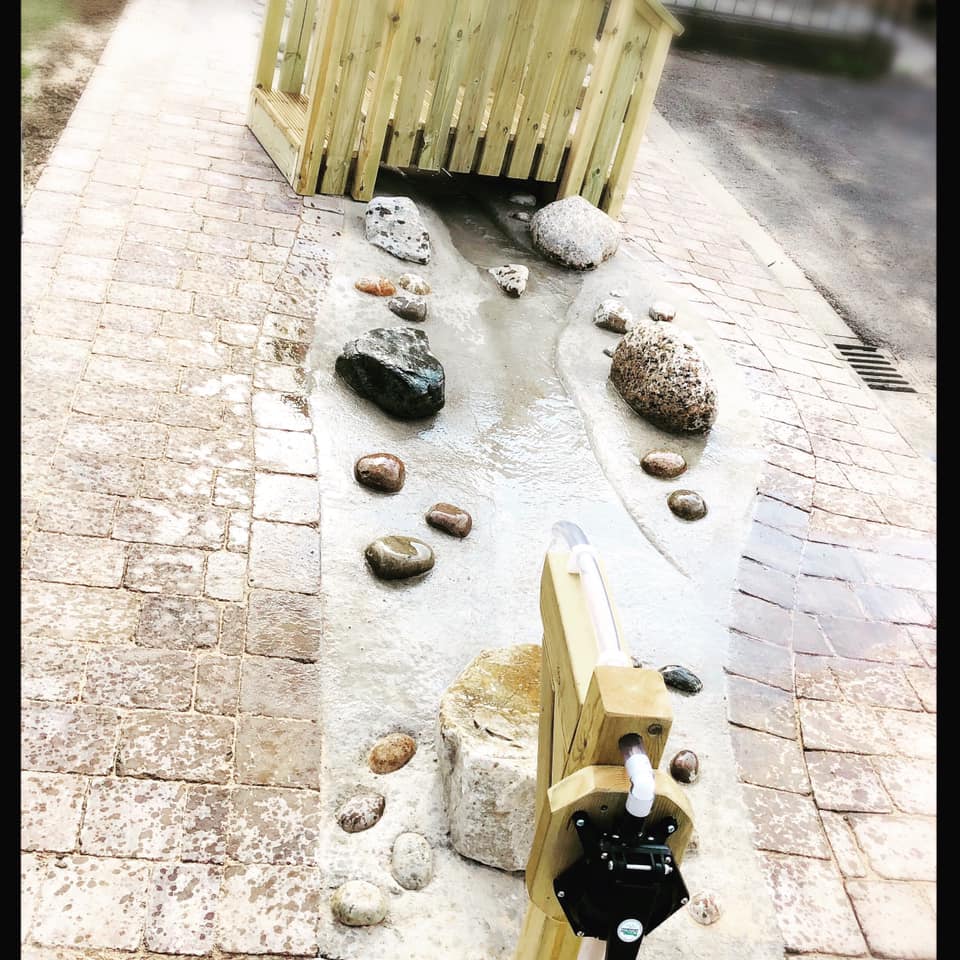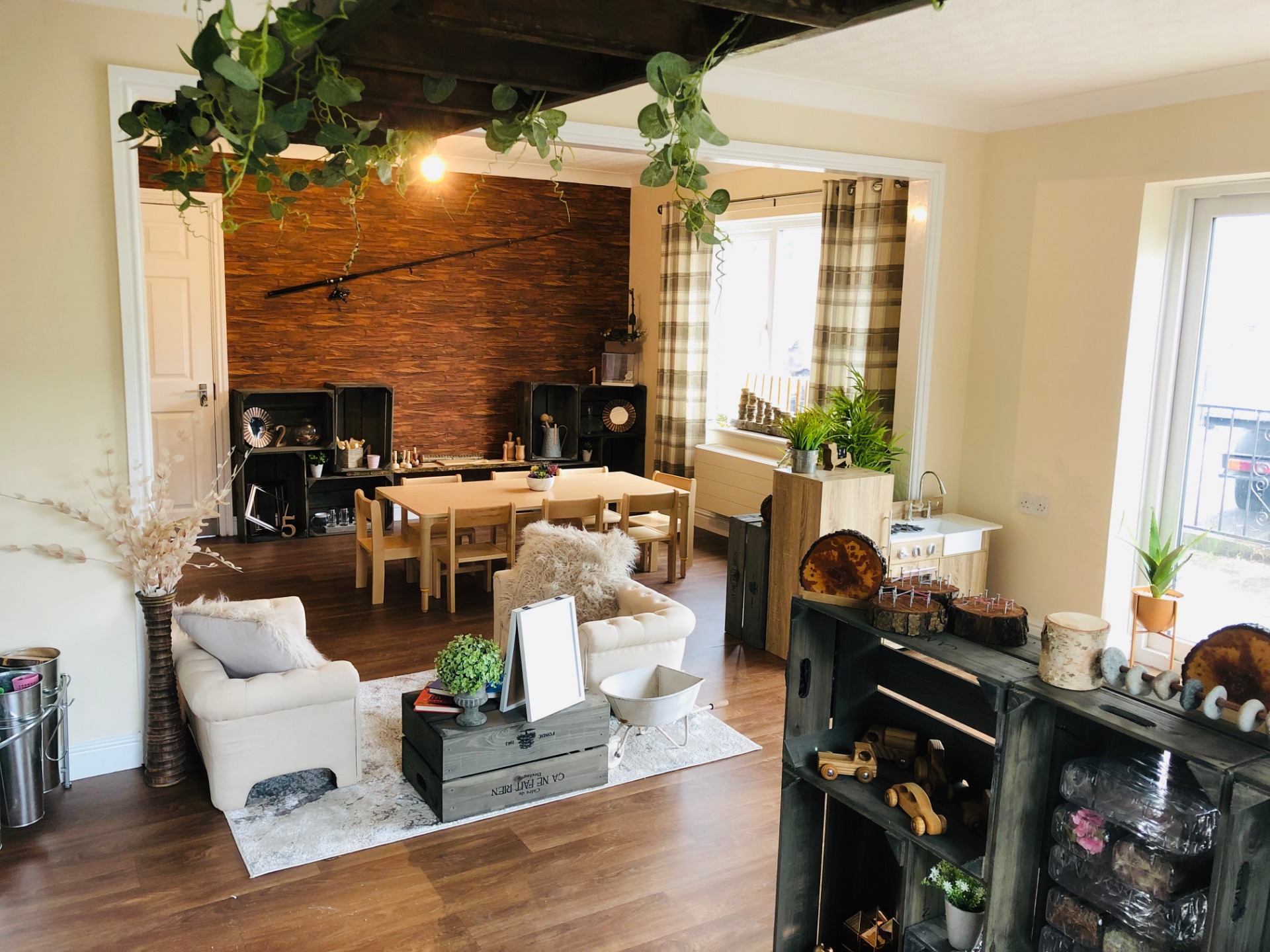Kindergarten (3-5 year old's)
Our Kindergarten is again reflected as a home from home environment. Here at Explorosity, we believe that our children thrive best in an environment in which they belong and are a part of. Children are on a ratio of one adult to eight children.
We have two rooms for our Kindergarten children, both with their own outdoor area. They are grouped into cohorts, for example all children that will go to school in this academic year will be in Kindergarten 1 with children going to school in the following academic year in the Kindergarten 2.
Throughout your child's time in Kindergarten, your child will be provided with stimulating and purposeful opportunities to develop their knowledge and skills, to inspire them, to encourage them to have a passion for literature and physical activity and to understand how to begin to regulate and manage their own feelings and behaviour.
Explorosity Education loves our children to be introduced to the wider community. We provide lots of opportunities to get out and about and for people of our community to come to us - for example, a firefighter may be the secret storyteller to read our book of the month.

Early Literacy is very important in our setting. We aim for children to be exposed to a 'rich diet' of literature such as stories, rhymes, poems through to simple signs and notes throughout the environment.
We hope to inspire in our children a love and a passion for reading and literature as in the words of Dr. Suess:
"The more you read, the more you'll know, the more you know, the more places you'll go".

Our home-like environment creates a sense of 'Hygge'. Hygge pronounced hue-gah is a Danish and Norwegian word used for a mood of coziness and comfortable conviviality with feelings of well being and contentment.
Throughout our environment, we have a variation in lighting, soft furnishings, real plants, and flowers to create scents, lots of spaces for children to snuggle up and be comfortable. We have weaved methods, mirrors, books, and prompts also through our environment to provide children with tools and opportunities to manage their feelings and behaviour with guidance and direction from our team.
The Atelier
A place for research and children's creative exploration.
In Kindergarten we have a separate space, full of exciting resources to aid children's creative discovery.
This space is stocked with challenging and exciting resources, displayed in a way that entices children. It is home to many creative projects, studies, and explorations.
We also use this space for small group times with our children developing their key skills and next steps.
In 2021 children in the Atelier explored many 'life cycle' systems including bees, chickens, butterflies, and frogs. We studied the life cycle's as we watched them grow, change and develop over time.
Outdoor Environment
Our environment is just beautiful and stimulating on the inside. Our children have ' free flow' access to the outdoor environment throughout the year!

Our children benefit from a challenging and stimulating outdoor environment. We have streams operated by the children using pumps, we have a large natural-looking sandpit, builders yards, growing opportunities, and of course loose parts areas where our children can create whatever their minds can think of.
Our highly qualified and trained team, use their excellent knowledge of child development and their children to extend children's learning and provide stimulating and challenging opportunities.
The Story Garden
A true love of literature and all things magical.
In Spring 2021, we renovated an unused area of garden into our beautiful story garden. This space is used predominantly by our Toddlers and Kindergarten children.
It is sometimes set up as a library / cosy area for children to go and explore at their leisure. Often we use this space for yoga and mindfulness activities too!
Take a look...
How to help your child at home ...
As a parent you are your child's first educator.
Learning to Read and Write
A question we are often asked by parents in our Kindergarten is if we can teach their children to write their names and read simple words.
Each child's learning is individual and tailored to their needs. Explorosity Education uses the department for education document 'letters and sounds', phase one throughout the setting. However, before your child is ready to formally 'write', there are lots of different aspects they need to build up to this. This ensures that your child is developing and learning the knowledge and transferable skills to enable them to become confident readers and writers.
Here at Explorosity, we utilise children's interests to help them explore writing. They are provided with lots of activities and physical play to develop the muscles from the shoulder to the fingertips - all these are crucial before a child can 'write'. We also provide mark making activities through sensory play.
Our environment is rich in literature and our team utilise every opportunity to ensure that children are exposed to a wide variety of vocabulary relative to their interests and learning. Our team regularly read and create stories with our children opening them up to new worlds and ideas.
To support your child at home, the most important thing you can do is read to and with your child. We will provide you each month with a rhyme to share with your child and activities you can do to support this.
Numbers and Counting
Numbers are everywhere. To help your child count and recognise numerals, build it into your everyday vocabulary and dialogue with your little one.
For example, you might count the stairs as you take them to bed, look out for numbers in the environment such as on price tags or number plates. This is helping children to ascribe meaning to how numbers are used. You may give children reason to count, for example, sharing out snacks with family members.
Be patient with your little one. If you think about a field of tall grass. If you run through that grass one time you will barely be able to see where you ran. If you ran backward and forwards multiple times you'd create a pathway. This is how children's brains develop - to create that pathway of knowledge in the brain, children need to be exposed to positive and exciting learning opportunities regularly to make pathways in their learning.
The more time you spend, for example counting for a purpose with your child, the better they will become at recognizing numerals, be able to sequence numbers, and use numbers accurately in play and learning.



